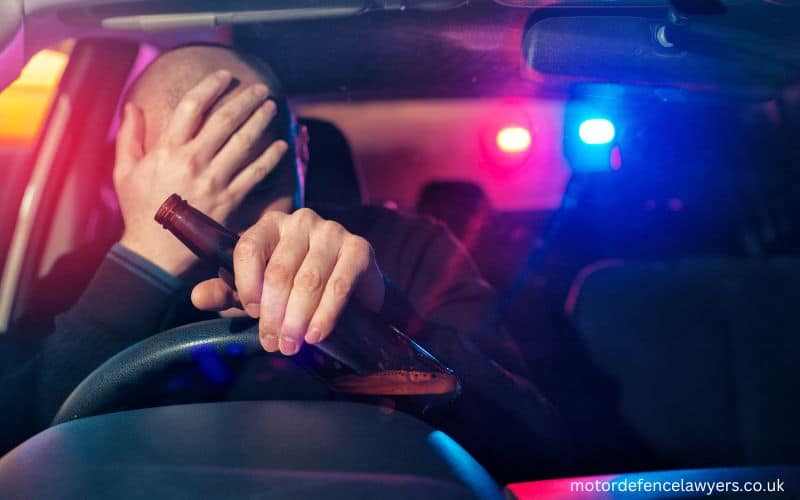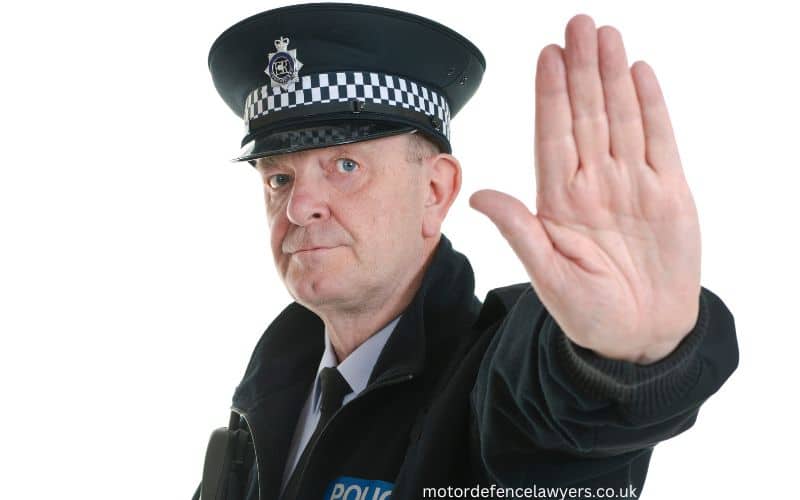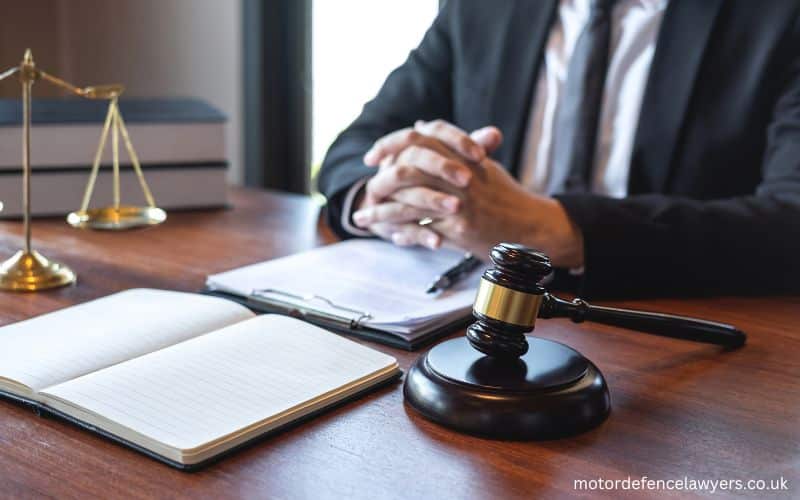Why Choose Us
- Ranked in the top 20 law firms by Trustpilot
- Nationwide Legal Coverage
- Free Consultation
- Fixed Fee Terms
- Competitive Rates
- Flexible Payment Plans
- Trusted Legal Care
- UK’s Leading Motoring Solicitors
4.8 out of 5
Our customers rate us
“EXCELLENT”
AS SEEN ON

12.12.2022
Caught Drink Driving for the 2nd Time? We Can Help
Drink driving is a summary offence in the UK. It is dealt with in Magistrates’ court. The magistrates have specific sentencing guidelines they follow when imposing a sentence. Penalties include a driving disqualification, community orders, and custody (Prison).
A previous conviction, i.e. caught drink driving a second time, is an aggravating factor when the court imposes a sentence, meaning that sentencing is more onerous for repeat offenders.
If it is your second drink driving offence within 10 years, a prison sentence and a minimum driving ban of 3 years is a real possibility.
Charged with drink driving? We can help
Send us a message or call us on 0333 443 2366 for friendly advice

There are different classes of driving offences involving alcohol. Sec 5(1) of the Road Traffic Act 1988 describes drink driving as follows:
If a person —
(a) drives or attempts to drive a motor vehicle on a road or other public place, or
(b) is in charge of a motor vehicle on a road or other public place,
after consuming so much alcohol that the proportion of it in his breath, blood or urine exceeds the prescribed limit, he is guilty of an offence.
The legal limits are:
Charged with drink driving? We can help
Send us a message or call us on 0333 443 2366 for friendly advice

The most significant difference between a first and a second conviction is the mandatory three-year disqualification period for the second offence. Section 34(3) of the Road Traffic Offenders Act 1988 stipulates that if a person has been convicted of drink driving within ten years preceding the current conviction, the minimum period of disqualification is three years.
Schedule 2 of the Road Traffic Offenders Act 1988 sets out the penalties for drink driving offences.
The penalties you may face for a second drink driving offence include the following:
The magistrates must follow the relevant sentencing guidelines when deciding on a sentence. The Magistrates’ courts sentencing guidelines stipulate specific starting points to help them decide on an appropriate sentence. The alcohol levels in your breath, blood or urine determine the starting points.
For example, if the level of alcohol in your blood is between 81-137mg, the guidelines stipulate a Band C fine and a 36-40 month disqualification (for second offenders) as the starting point for sentencing.
If your blood-alcohol level is 207-275mg, the starting point is a medium-level community order and 36-52 months disqualification. Above a certain level, 12 weeks of custody is the starting point.
And remember that a second offence is an aggravating factor – penalties will be more severe. The sentencing guidelines are just a starting point.
There is no maximum fine, and if your alcohol level is above a certain threshold, you may not have the option of just a fine. The court will consider a community service order or a period of custody.
If you are convicted of a second drink driving offence within 3 years of the first offence, the court can consider a custodial sentence regardless of the alcohol level.
A period of imprisonment becomes a real possibility when convicted of drink driving for the second time. The maximum period of imprisonment is six months. If you have previously been given a suspended sentence or carried out community service, there is a higher possibility that the court will send you to prison.
Factors that could increase the likelihood of imprisonment include:
Yes, the court will consider factors such as:

The minimum three-year disqualification period can go up to 60 months, depending on the circumstances of your case.
Charged with drink driving? We can help
Send us a message or call us on 0333 443 2366 for friendly advice
When the courts consider the guidance regarding the length of disqualification for a second offence, the court will look at all the relevant circumstances, including:
If immediate custody is imposed, the disqualification will be extended.
Section 34A of the Road Traffic Offenders Act 1988 states the court may order that the disqualification period is reduced by up to 25% if the offender completes an approved drink driving rehabilitation course.
If there are good reasons, the court may be willing to offer a second offender the opportunity to attend such a course. The offender will have to pay specific fees by a stipulated time.
It is not usually appropriate to be offered an opportunity to attend a third time, so this might be the last opportunity to reduce any disqualification period.
Section 42 of the Road Traffic Offenders Act 1988 allows a disqualified person to apply to the court for removal of the order.
Sec 42(3) stipulates the earliest you can make such an application is:
After half of the time, if the disqualification was for less than ten years but not less than four years.
Two years, if the disqualification was less than four years.
In all other cases, after five years.
Charged with drink driving? We can help
Send us a message or call us on 0333 443 2366 for friendly advice
What will the court take into account when considering early removal?
Sec 42 (2) stipulates what the court will consider. It includes:
If your application is refused, you must wait another three months before applying again.
You are automatically classified as a high-risk offender if you are convicted of a second drink driving offence within ten years. Your high-risk offender status and criminal conviction will appear on any police, customs, or employment checks.
In addition, until a DVLA-appointed doctor is satisfied that you are medically fit to drive again, you will not get your licence back after your ban has expired. This means your disqualification continues until you pass the medical exam.
Charged with drink driving? We can help
Send us a message or call us on 0333 443 2366 for friendly advice
You can enter a guilty plea, receive maximum credit for a guilty plea and mitigate the consequences of the sentence, which could include avoiding imprisonment and minimising disqualification.
You may be able to negotiate a guilty plea on the lesser charge of being in charge of a vehicle while above the legal limit. There is no mandatory driving ban for “in charge” convictions.
You can consider an application to establish special reasons under sec 34(1) of the Road Traffic Offenders Act 1988 so you are not disqualified or disqualified for a shorter period.
A “special reason” is not a defence but can help reduce or avoid a driving ban. The reason must relate to the offence, i.e., why you drove or why your alcohol level was above the limit. It must not relate to the offender; losing your job, for example, will not be a special reason.
Examples of special reasons include:
You can raise a successful defence on factual grounds. Examples would include that you were not ‘driving’, weren’t over the legal limit, etc.
You can defend the case on technical or procedural grounds, for example, the provision of the “statutory warning”, the reading equipment was “faulty”, the time for effective reading lapsed, etc.
These are just a few of the approaches one can take. For more specific advice, please call us for a free consultation.
If you are caught drink driving for a second time, it is essential that someone with experience handles your case.
Why Choose Us
We have been successfully representing clients in motoring courts nationwide
Contact us for a free consultation, our expert solicitors will be able to discuss your case and advise on legal options.
Birmingham
Bradford
Bristol
Carlisle
Cardiff
Chelmsford
Huddersfield
Hull
Manchester
Liverpool
Leeds
London
Newcastle
Norwich
Nottingham
Sheffield